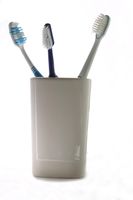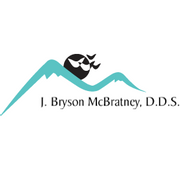Why Dentists Recommend Using a Soft-Bristled Toothbrush

Brushing your teeth regularly is an important part of dental care — and just as important is the type of brush you use. Unfortunately, the market is very misleading; with soft, medium, and hard toothbrushes at your disposal, many people mistakenly think that the hardness of each is proportional to its cleaning power. However, J. Bryson McBratney, D.D.S. in Anchorage is here to tell you that that couldn’t be farther from the truth.
Most dentists recommend soft-bristled toothbrushes, and here’s why:
- Safer For Your Teeth: Hard bristles will strip the enamel right off your teeth, compromising their protection against extreme temperatures and bacterial infection. Soft-bristled brushes that are softly rounded at the tip are much safer for your teeth. Teeth cleaning power doesn’t come from how hard you scrub — it comes from good technique, flossing, and regular dentist visits.
 Gentler For Your Gums: It’s no good for your gums to bleed when you brush your teeth. Hard-bristled brushes might give you a false sense of accomplishment because of how harsh they feel, but that doesn’t actually mean they’re cleaning better. In fact, they could be making things worse. Their rough treatment actually makes your gums recede and become more susceptible to infection. Dentists recommend soft-bristled brushes because they’re gentler on your gums, while still removing food particles and plaque.
Gentler For Your Gums: It’s no good for your gums to bleed when you brush your teeth. Hard-bristled brushes might give you a false sense of accomplishment because of how harsh they feel, but that doesn’t actually mean they’re cleaning better. In fact, they could be making things worse. Their rough treatment actually makes your gums recede and become more susceptible to infection. Dentists recommend soft-bristled brushes because they’re gentler on your gums, while still removing food particles and plaque.- Hard Toothbrushes Aren’t For Teeth: You may be wondering, if dentists recommend only soft-bristled toothbrushes, then why do we have hard-bristled toothbrushes in the first place? The answer is that hard-bristled brushes are better suited for cleaning dentures, implants, or for scrubbing your bathroom sink.
For best results, only buy soft toothbrushes marked with the ADA seal of approval. For professional advice, ask your dentist. You can reach J. Bryson McBratney, D.D.S. at (907) 562-3323 to set up an appointment, or visit the Anchorage dentist online for more information about dental care services.
About the Business
Have a question? Ask the experts!
Send your question

